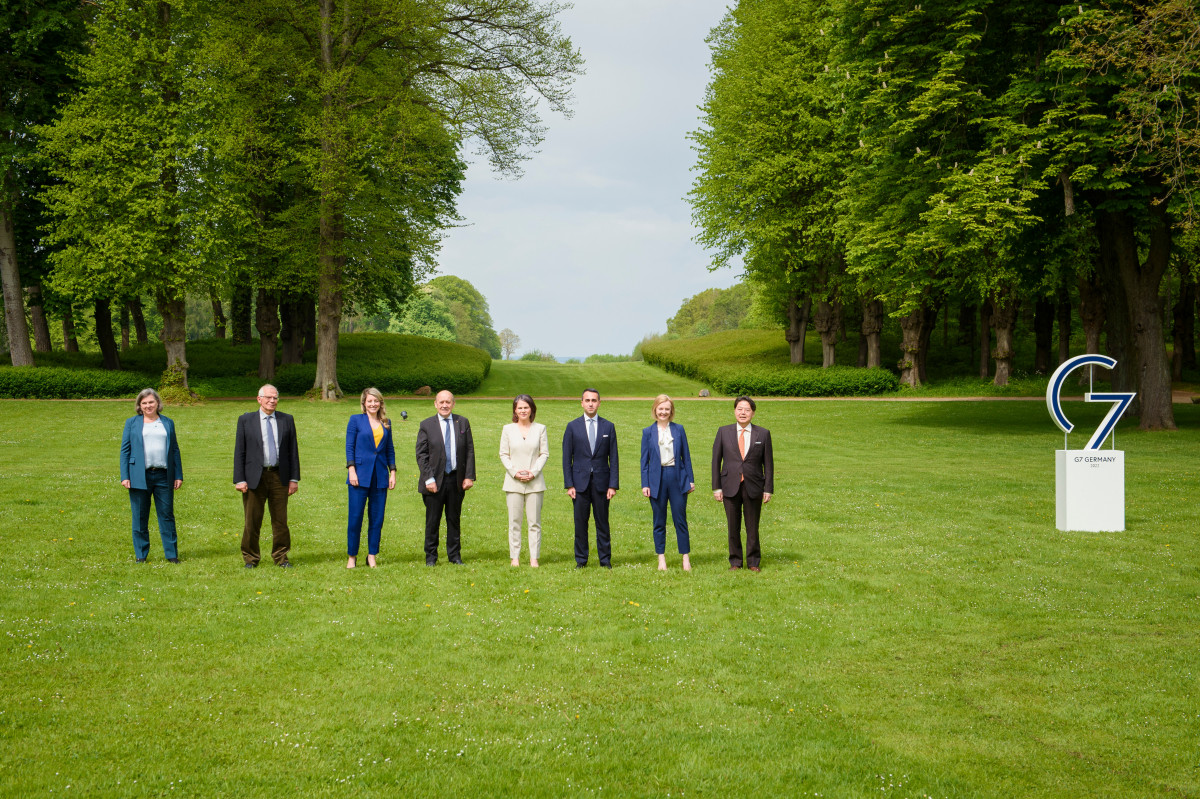War will not push climate off German G7 summit agenda – political analyst
Ella Kokotsis is the Director of Accountability, G7 and G20 Research Groups, University of Toronto. She has attended most G7 summits since 1994, has written extensively on various aspects of summitry and global governance, and has spoken at summit-related conferences worldwide. Her scholarly methodology for assessing summit compliance continues to serve as the basis for the annual G7, G20 and BRICS Research Groups accountability reports. She is the author of Keeping International Commitments: Compliance, Credibility and the G7 and co-author of the Global Governance of Climate Change and Reconfiguring the Global Governance of Climate Change.
Clean Energy Wire: Can the G7 summit in Germany make a difference when it comes to global climate action efforts?
Ella Kokotsis: The German G7 Presidency is very well positioned to make a difference on climate change in Schloss Elmau (26 - 28 June). Germany has traditionally been the G7’s leader on climate and energy policy since the group’s inception in 1975 and has spearheaded some of the most decisive agreements on climate policy. So, I expect strong leadership on climate from chancellor (Olaf) Scholz in this regard.
Last year in Cornwall, each G7 country committed to achieving net zero emissions by 2050. Germany has taken the most aggressive approach, with a target date to do so by 2045.
In this regard, I see climate initiatives from the G7 being strong in several areas. An accelerated reduction of fossil fuel reliance through a transition to cleaner and greener energy technologies is easier for some G7 countries, like Canada, which has committed to phasing out coal-fired power generation by 2030. But coal continues to be widely used across Europe, particularly in Germany. So, although the phase-out of coal-fired generation will be high on the G7’s agenda, it will likely be a sticking point for Germany, Japan and the U.S.
Other areas for climate initiatives include digitalisation, retrofitting energy infrastructure for things like synthetic fuels, strengthening resilience against extreme weather events and protecting, restoring and managing ecosystems to specifically address climate change challenges.
The war will undoubtedly feature high on the G7’s agenda, but I don’t think it will completely derail it.
Can the Ukraine war derail the climate agenda?
Summits at this level are more often than not thrown off course by major political events, and this year is no exception.
Putin’s war has caused global disruptions across so many sectors – with enormous impacts not only on the security of global energy supply, but also on food security and migration. The war will undoubtedly feature high on the G7’s agenda, but I don’t think it will completely derail it. Even prior to assuming the G7 presidency on 1 January 2022, chancellor Scholz made it clear that the climate crisis was central for his government.
Over the past year, we’ve seen how climate and energy issues have emerged as dominant global themes, given the very dramatic convergence of global events that elevated energy and climate issues to near-crisis proportions. Severe weather events around the globe, coupled with surges in demand following the pandemic recovery that were layered with COVID-related supply chain issues, have all resulted in dramatic surges in energy demand – and all of these have been exacerbated by the war in Ukraine.
The G7 will need to manage the crisis in Ukraine and to simultaneously recognise the interconnections between the war and all these other issues.
G7 summit: How can Germany push the climate agenda as the war dominates debates?
Will Germany be able to make substantial progress on the “climate club” idea?
Germany’s proposal of a climate club is aimed at driving an ambitious global energy transition that’s grounded in climate neutrality. However, for it to be effective, very strong efforts will be required of the G7 to support developing countries and emerging economies as they transition off fossil fuels and move towards renewable energy sources. The G7 members’ commitment to jointly mobilise 100 billion U.S. dollars annually is key in enabling these transition efforts across the developing world. This commitment will likely get some traction this year, as it must be met for effective change to happen across the developing world.
What's your take on the climate, energy and just transition partnerships the German presidency is pushing?
Germany understands that efforts to meet net zero emissions and a sustainable future require a just transition that strengthens social protection systems and promotes employment, continuing education, reskilling and training.
This will require the country's government, along with its G7 partners, to actively engage in and consult on climate, energy and environment decision-making across all groups, including Indigenous peoples, women and girls, people with disabilities, local community organisations, low-income communities and marginalised populations.
To enable this, leaders will need to address the barriers to accessing climate, energy and nature finance by enabling the full, meaningful and equal participation of these groups and local civil society organisations. I believe that in its capacity as G7 presidency, Germany is well-positioned to lead this initiative.



